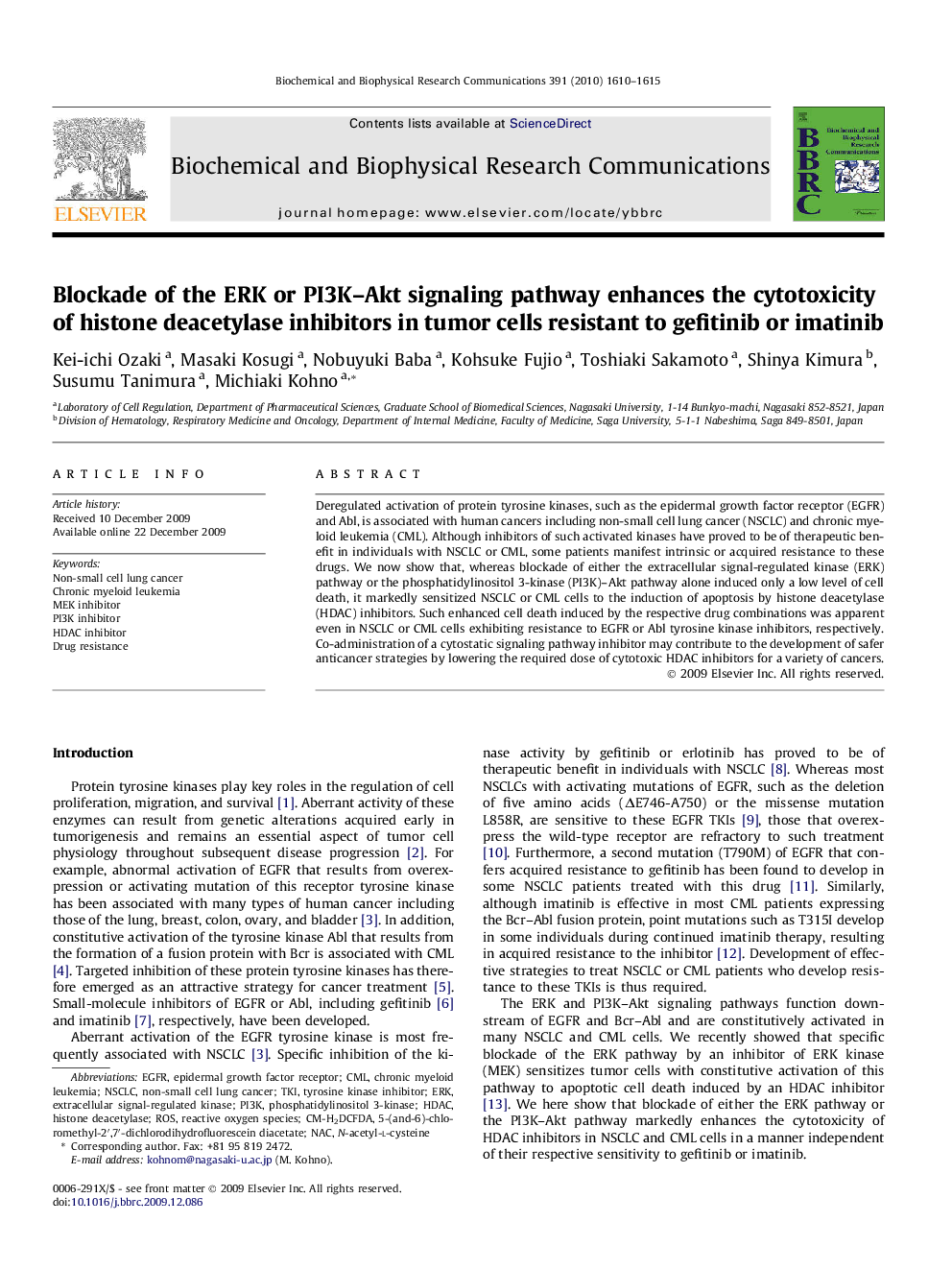| Article ID | Journal | Published Year | Pages | File Type |
|---|---|---|---|---|
| 1932269 | Biochemical and Biophysical Research Communications | 2010 | 6 Pages |
Deregulated activation of protein tyrosine kinases, such as the epidermal growth factor receptor (EGFR) and Abl, is associated with human cancers including non-small cell lung cancer (NSCLC) and chronic myeloid leukemia (CML). Although inhibitors of such activated kinases have proved to be of therapeutic benefit in individuals with NSCLC or CML, some patients manifest intrinsic or acquired resistance to these drugs. We now show that, whereas blockade of either the extracellular signal-regulated kinase (ERK) pathway or the phosphatidylinositol 3-kinase (PI3K)–Akt pathway alone induced only a low level of cell death, it markedly sensitized NSCLC or CML cells to the induction of apoptosis by histone deacetylase (HDAC) inhibitors. Such enhanced cell death induced by the respective drug combinations was apparent even in NSCLC or CML cells exhibiting resistance to EGFR or Abl tyrosine kinase inhibitors, respectively. Co-administration of a cytostatic signaling pathway inhibitor may contribute to the development of safer anticancer strategies by lowering the required dose of cytotoxic HDAC inhibitors for a variety of cancers.
